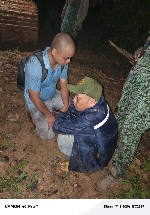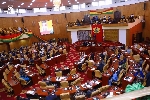UE/R: Health workers warn of rising misuse of Emergency Contraceptive pills among youth
 Emergency contraceptive pills are designed to prevent pregnancy after unprotected sex
Emergency contraceptive pills are designed to prevent pregnancy after unprotected sex
Health workers in the Upper East Region have bemoaned the increasing misuse of emergency contraceptive pills, often referred to as 'prepaid' pills, among the youth.
They have revealed alarming statistics indicating that a significant number of young men are now regularly distributing these pills to their female partners.
According to health professionals, “out of every 10 men, 8 are likely to give these pills to their female partners on a daily basis. Young men in the region now stock their homes and pockets with these pills, often offering them to young ladies even before engaging in sexual activity.”
Emergency contraceptive pills (ECPs) are designed to prevent pregnancy after unprotected sex. Commonly known as the “morning-after pill,” they are intended to be used as a last-resort measure and are most effective when taken within 72 hours of intercourse.
Marry Azika, a midwife with the Bolgatanga Municipal Health Directorate, speaking on A1 Radio, a local station monitored by ClassFM, about the growing misuse of these pills emphasised that the widespread casual distribution of ECPs reflects a severe lack of education about family planning and contraception.
“Emergency pills are not intended to be a regular method of contraception. They are meant for occasional use to prevent pregnancy after unprotected sex or contraceptive failure,” Ms. Azika said.
“We need to create an environment where young people feel comfortable discussing these topics and where accurate information is readily available.”
Ms. Azika warned that frequent use of ECPs as a regular contraceptive method can lead to various health issues, including hormonal imbalances, menstrual irregularities, and decreased effectiveness.
Overuse may also result in side effects such as nausea, fatigue, and dizziness.
She called for a comprehensive approach to address the issue, urging parents, educators, and community leaders to engage in open discussions about sexual health and effective contraception.
“We need to enhance outreach programmes within health facilities to educate young people about the proper use of emergency contraceptives and the importance of regular contraceptive methods,” Ms. Azika stressed.
Scientific research supports her concerns, showing that ECPs are meant for emergency use only and should not replace more reliable contraceptive methods like birth control pills, intrauterine devices (IUDs), or condoms.
Source: classfmonline.com/Moses Apiah
Trending News

Forestry Commission team arrest 11 persons in Pra Anum forest reserve for illegal mining
06:50
Constitution Review Committee to present its final report to President Mahama today – Kwakye Ofosu
09:41
GA/R: Residents of Baba Junction appeal for urgent storm drain intervention
13:12
One in every three women suffer Gender-Based Violence in Ghana – FIDA
15:32
Deputy Minister expresses relief over progress in resolving Bawku conflict
12:02
Abuakwa South MP recognises teachers’ dedication with first-ever awards ceremony
06:33
Stop treating politicians like kings: Abu Jinapor
09:23
Parliament approves GHS357.1 billion budget for 2026 fiscal year
12:59
NPP government left contractors unpaid for 8 years in Upper Denkyira East – MCE
13:22
Prez. Mahama sends Ghanaian troops to aid Jamaica’s recovery
11:48



